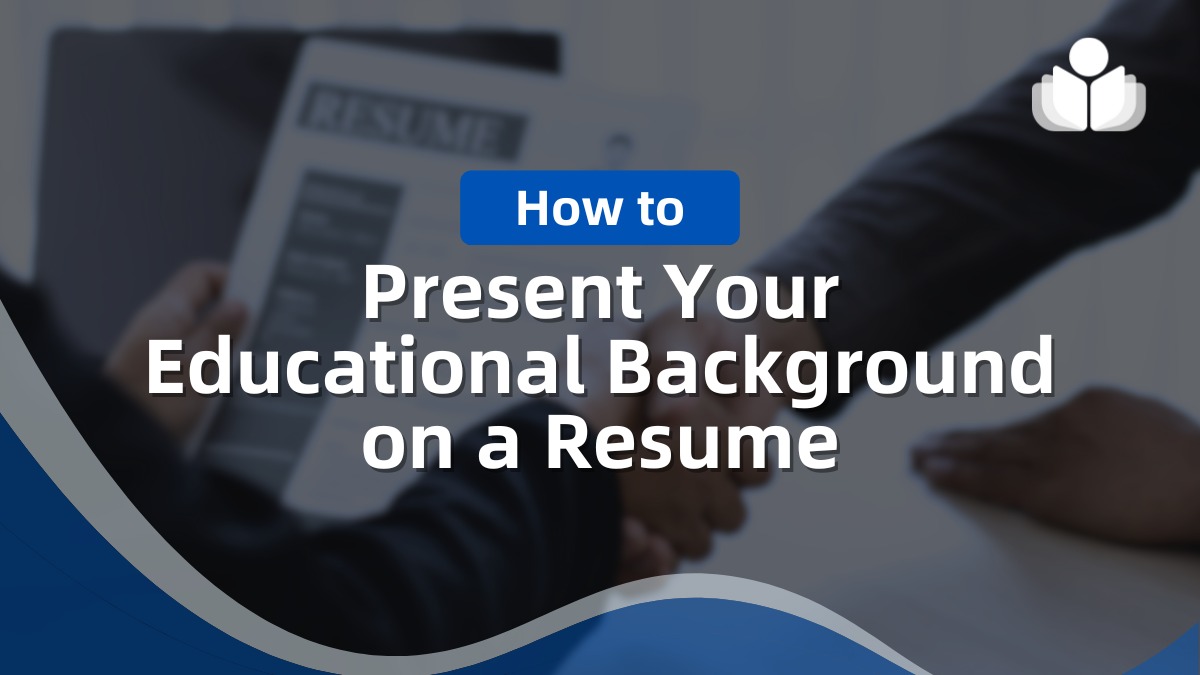The resume header is the first thing recruiters and hiring managers notice, making it one of the most crucial sections of your resume. This simple yet impactful part includes your name, contact information, and often a professional title or summary that immediately sets the tone for your candidacy.
Including the correct details, like your phone number, email address, and LinkedIn profile, ensures you’re easily reachable. A professional title or concise summary under your name can quickly highlight your expertise. Whether a recent graduate or a seasoned professional, crafting a transparent, well-organized resume header helps make a lasting first impression and sets you apart in a competitive job market.
Professional Summary (Optional But Recommended)
A concise statement that highlights your essential experiences, skills, and educational background that align with your career goals. It provides a quick overview for the employer to understand what you bring.
Example:
Recent graduate with a Bachelor’s Degree in Business Administration and a solid foundation in financial analysis, strategic planning, and data-driven decision-making. Proven ability to analyze complex financial data, interpret market trends, and support operational growth. Adept at using tools like Excel, QuickBooks, and Power BI for budgeting and forecasting.
Seeking to leverage a solid academic background and hands-on experience in internships to contribute to corporate finance or business operations. Passionate about using data insights to support strategic decisions and streamline business processes for greater efficiency.
Core Competencies:
- Financial Reporting | Data Analysis | Project Management | Business Operations
Education Section Title
Use a straightforward and professional title for this section, highlighting your educational background. Common options include:
- Education
- Academic Background
- Education and Certifications (if you have professional certifications relevant to the role)
Choose a title that best fits the depth of your academic achievements and credentials. If you’re applying for a role that highly values professional certifications or continuing education, “Education and Certifications” can emphasize your qualifications.
Examples of Section Titles:
Education
Academic Background
Education and Professional Certifications
By using a clear and concise section title, recruiters will immediately know where to find your academic qualifications on your resume.
List Your Degrees and Institutions Example
Master of Business Administration (MBA)
Harvard Business School
Graduated: May 2022
GPA: 3.9/4.0
Boston, MA
Bachelor of Science in Computer Science
University of California, Berkeley
Graduated: May 2018
GPA: 3.8/4.0
Berkeley, CA
Bachelor of Arts in Psychology
University of Toronto
Graduated: May 2016
Toronto, Canada
List the most recent for each degree first, followed by prior degrees in reverse chronological order. Optionally include the location and GPA if they’re impressive or relevant.
Resume Header Example
Your Full Name
123-456-7890 | [email protected] | linkedin.com/in/yourname
Optional: Professional Title or Summary
Financial Analyst | 5+ Years of Experience in Data-Driven Decision Making
Experienced in corporate finance, data analysis, and risk management. Adept at improving financial performance through strategic forecasting and analysis.
Highlight Relevant Coursework (Optional)
Including relevant coursework on your resume is especially useful if you’re a recent graduate or transitioning into a new field. It helps showcase your academic foundation and can emphasize your qualifications for the role, particularly when you need more extensive professional experience. You can list courses that directly align with the job you’re applying for to show your knowledge in critical areas.
Here’s how to format it:
Relevant Coursework:
- Financial Accounting
- Data Science and Machine Learning
- Business Analytics
- Marketing Strategy and Consumer Behavior
- Corporate Finance and Risk Management
- Advanced Statistical Methods
This section can be tailored for different job applications by highlighting courses most relevant to the specific role.
Include Academic Honors or Awards
Highlighting your academic honors or awards on a resume is a great way to showcase your dedication and achievements during your educational journey. Whether you’ve earned a spot on the Dean’s List, received a prestigious scholarship, or graduated with honors like Summa Cum Laude, these distinctions show your commitment to excellence.
When listing honors, place them directly under the relevant degree in your education section. Be concise and specific about the award and when you received it. If applicable, mention the criteria for earning the award, as this can emphasize the competitive nature of the recognition.
Examples:
- Dean’s List, Fall 2021 – Spring 2023
- Summa Cum Laude, Bachelor of Arts in English, 2023
- XYZ Academic Scholarship, 2020 – 2023 (Awarded for exceptional academic performance)
Including these honors adds credibility and helps potential employers recognize your academic strengths.
Certifications and Professional Development (If Applicable)
Certifications and professional development can significantly strengthen your resume, mainly if they apply to the position you’re applying for. List industry-specific certifications, online courses, or professional development programs that have equipped you with additional skills or knowledge. Ensure each certification is named, includes the issuing organization, and specifies the completion date.
If the certification is well-known in your field, such as those provided by Google, Microsoft, or a governing body, it can provide added credibility. Online courses like Coursera or LinkedIn Learning are also valuable, especially for showcasing self-initiated learning.
Example:
- Google Data Analytics Certificate, Completed August 2022
- CFA Level I Candidate, Anticipated June 2024
- Project Management Professional (PMP) Certification, January 2021
- HubSpot Inbound Marketing Certification, Completed December 2023
Study Abroad or Special Programs
Including study abroad experiences or participation in specialized academic programs can be an excellent way to show diversity in your education and exposure to different cultures, teaching methods, or industries. These experiences show adaptability, independence, and a willingness to step outside your comfort zone, which employers highly value.
When listing these, provide the program name, institution, location, and dates of participation. If relevant, mention any significant projects, research, or skills gained. Highlighting coursework or collaborations with international students can also illustrate cross-cultural communication skills.
Example:
Study Abroad Program, University of Sydney, Australia – Spring 2022
- Completed coursework in International Business and Cross-Cultural Management
- Collaborated with international students on a market entry strategy project for an Australian tech company
Omit High School Information (If Not a Recent Graduate)
Once you’ve completed higher education, such as college or vocational training, including high school details on your resume is usually unnecessary. Employers are more interested in your most recent and relevant qualifications. If you have a college degree or are pursuing one, a high school education becomes redundant unless it’s specifically requested or particularly applicable to the job.
However, listing high school details is appropriate if you’re a recent high school graduate with little or no college experience. In this case, mention your diploma, graduation date, honors, and relevant extracurriculars showcasing transferable skills. Similarly, for those applying for internships, high school achievements may help fill the gap when you need more substantial higher education or work experience.
Leave out high school information once you have more advanced educational qualifications.
Placement on Resume
For recent graduates, education is one of the most critical aspects of your resume. Since you may still need extensive work experience, place the Education section immediately after your Professional Summary. This allows recruiters to assess your academic qualifications, which is likely the most robust evidence of your capabilities at this stage. Be sure to highlight relevant coursework, academic honors, and any notable projects or internships that align with the job you’re seeking.
For experienced professionals, your work history typically takes precedence, as it shows practical, on-the-job skills. Position the Education section after your Work Experience. Employers will primarily focus on your professional accomplishments, and your educational background will be a supporting credential. Only list degrees and certifications relevant to the job, and omit older, less relevant qualifications (such as high school details).
Tailor the Section for Each Job
When tailoring the education section for each job, focus on the aspects of your academic background that align most closely with the job description. Start by reviewing the essential qualifications and skills the employer seeks, then highlight relevant coursework, projects, or certifications that show your expertise in those areas. For example, if you’re applying for a data analyst role, you might list courses such as “Data Science” or “Statistics” and projects involving data analysis.
If you’ve completed certifications like “Google Analytics” or “Financial Modeling,” include these to showcase practical skills. For recent graduates, adding relevant academic projects that mirror real-world tasks can further show your readiness for the job.
Conclusion
Presenting your educational background on a resume is critical to showcasing your qualifications and enhancing your candidacy. Start by listing your highest degree, including essential details like the institution, degree title, and graduation date.
Highlight relevant coursework, academic achievements, and certifications that align with the job you’re applying for. Tailor this section to emphasize your strengths, especially if you’re a recent graduate or transitioning careers. Simplicity and clarity are essential. By organizing this section well, you can show the value of your education in supporting your professional goals.
 Sections of this topic
Sections of this topic
















